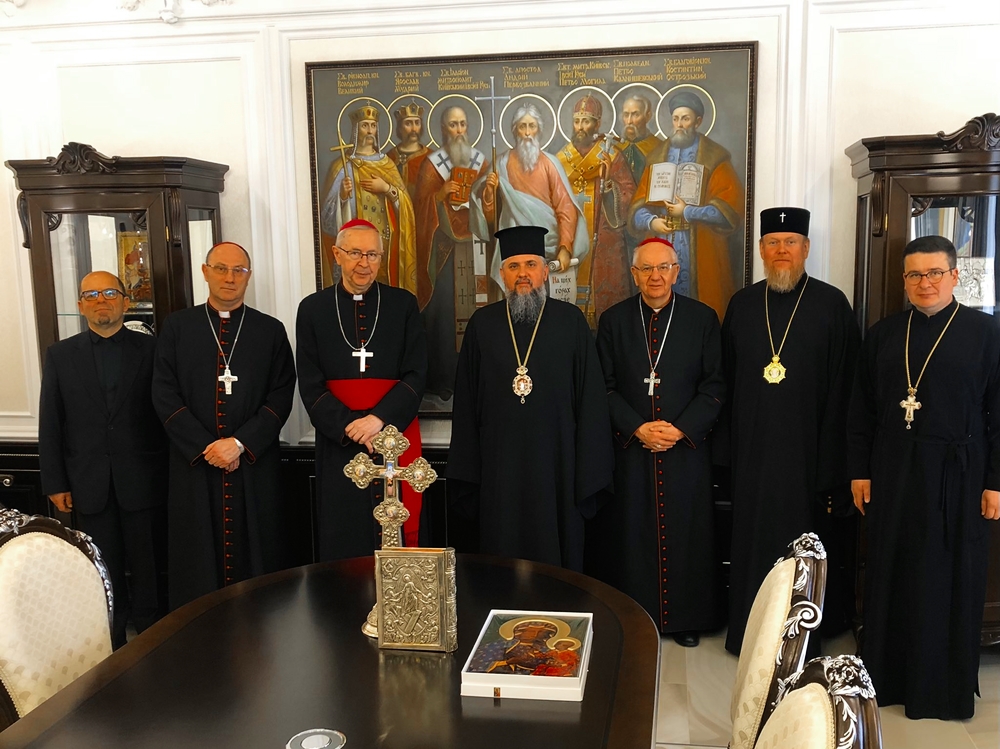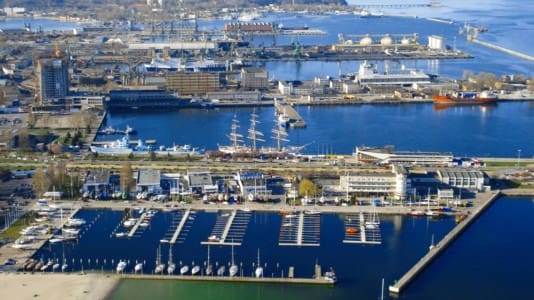The time for full reconciliation between Poland and Ukraine is at hand and may now involve both the Greek Catholic as well as the Ukrainian Orthodox Church, said Archbishop of Lublin Stanisław Budzik after returning from the Polish Episcopate’s mission to Lviv and Kyiv, in an interview with Polish media outlet Tygodnik Solidarność.
Archbishop Budzik and the delegation from the Polish Episcopate visited Bucha and Yrpin, the sites of massacres in Ukraine. He underlined the bravery and determination of the Ukrainians he met.
“We saw the great heart of the Ukrainian nation, its love of freedom and willingness to defend fundamental values,” he said. He also felt that Ukraine was now a nation admired worldwide for its resistance.
He said he saw a great opportunity for Polish-Ukrainian reconciliation because Poland was in the forefront of the allies of Ukraine, which was a great chance to overcome a difficult historic past.
“Today’s relations between our two nations are almost euphoric and this could be translated into real brotherhood that can heal the wounds of the past,” he said.
It is a past that has included the massacre of Poles in Volhynia and the post-war cleansing of Ukrainians by the Polish army in the south-east of Poland, as well as earlier colonization of Ukraine by Polish magnates and Ukrainian Cossacks working with the Tsar against Poles.
The chance is now there for both sides to forgive each other, and the work began by Pope John Paul II’s visit to Ukraine in 2001 could now be completed, the archbishop said.
Asked whether the reconciliation between the Roman and Greek Catholic Churches should not now be broadened to include the Ukrainian Orthodox Church, the archbishop agreed. He saw both these churches as having a great role to play in building Ukrainian identity. Archbishop Budzik praised the Ukrainian Orthodox establishment for being open to ecumenical dialogue following its separation from Moscow three years ago.
The talks were made easier by the enormous amount of good will that has built up between the two nations as a result of Polish humanitarian efforts to help Ukraine and the fact there are no refugee camps in Poland because Poles have been willing to take the refugees into their own homes.
Asked whether he feared that Poles could tire of their “guests,” Budzik felt this was unlikely because Ukrainians had already found a home and place of work in Poland before the war and Poles appreciated them. He saw a greater danger that there might be a conflict of interest in terms of Ukraine needing its people back for the reconstruction process rather than remaining to work in Poland.
Archbishop Budzik was particularly impressed with how Ukrainians have shown readiness to sacrifice their lives for their country and the values dear to them. He contrasted that to polling research in Poland showing that many would flee if their lives were in danger and only a minority would be willing to risk their lives.
“Ukraine with its readiness to shed blood for fundamental values represents the missing conscience of Europe,” he said. He hoped that this readiness for sacrifice would be recognized and would lead to speedy Ukrainian accession to the EU and NATO.






